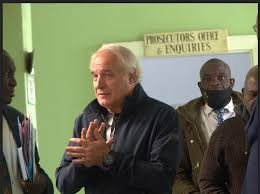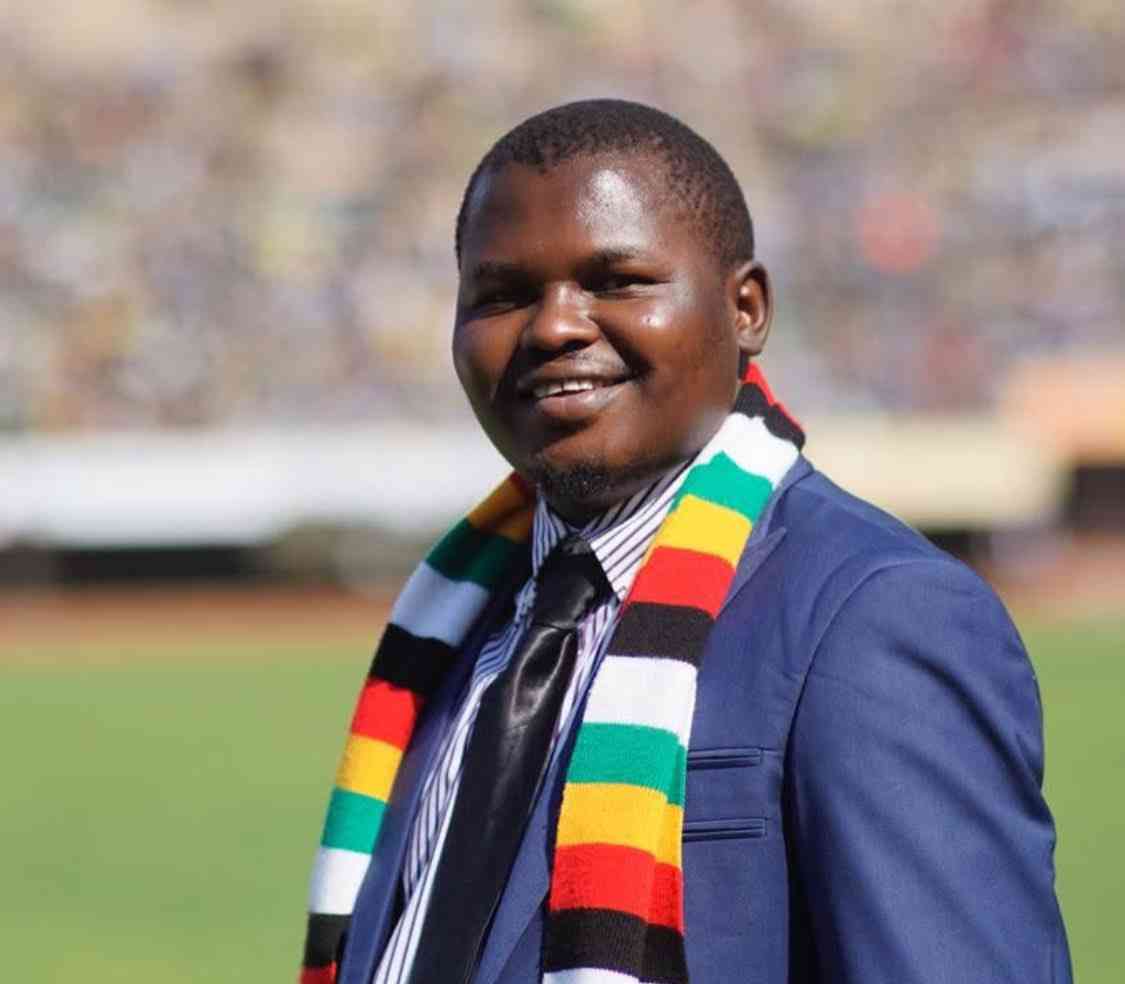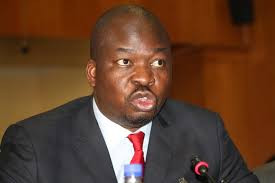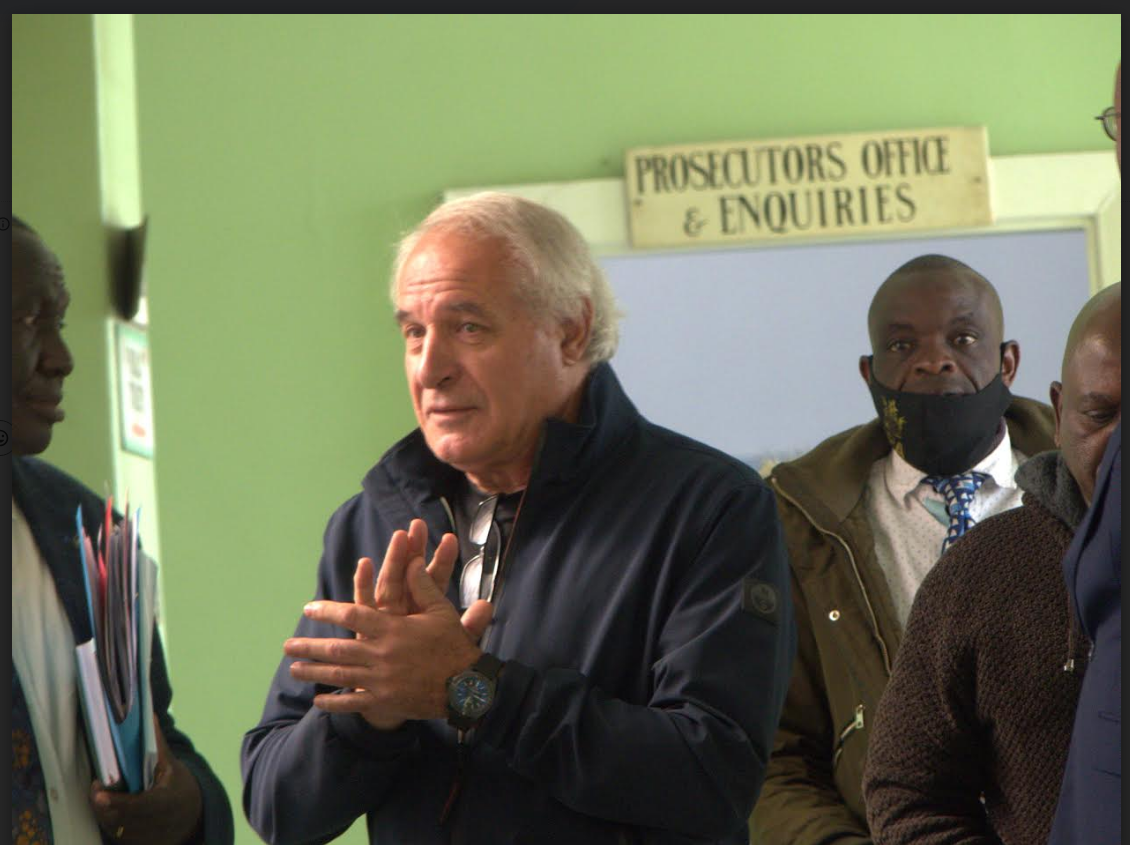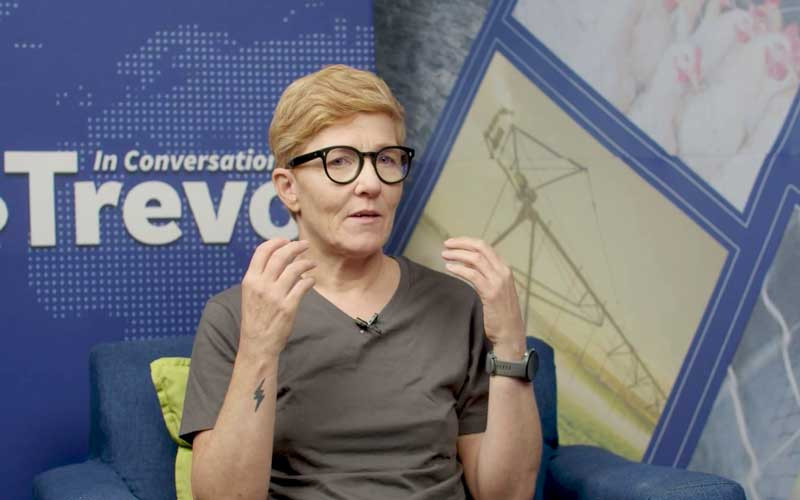
Bitcoin advocate and Bitcoin for Fairness executive director Anita Posch says there is a growing community of Bitcoin users in Zimbabwe as people circumvent barriers imposed by regulatory restrictions.
Posch (AP) told Alpha Media Holdings chairman Trevor Ncube (TN) on the platform In Conversation with Trevor that there was a huge increase in the use of digital assets like Bitcoin to send and receive money.
Below are excerpts from the interview.
TN: Anita Posch, welcome to In Conversation With Trevor.
AP: Thank you very much Trevor. I'm very honoured to be here today. Really!
TN: I am always fascinated by how I meet people who end up sitting where you are sitting.
So, we met after you posted this tweet on Twitter. Let’s share it with our viewers.
Then a friend of mine, Stafford Massie, alerted me to your tweet and said Trevor get in touch with Anita and see if you can talk to her.
- In Conversation with Trevor: Chisamba: Let’s be proud of ourselves
- In Conversation with Trevor: ‘I tried to change Zanu PF from within’ – Margaret Dongo
- In Conversation with Trevor : How car crash changed my life
- In Conversation With Trevor: ‘We lost our humanity’
Keep Reading
Just briefly tell us what it is that you did before you made that tweet.
AP: Okay. So, we were traveling to the Eastern Highlands, and I realised it is a very remote area, but still a lot of people are living there, agriculture and natural beauty and I thought I want to try to send Bitcoin from here to South Africa, because this is something that you like standing there in this remote area. You cannot really do that from Zimbabwe to South Africa.
So I sent some Bitcoin from my phone to Bitcoinkasi which is a project in South Africa...
TN: In Cape Town?
AP: Yes, in Mossel Bay.
We can talk about them later because it is a very interesting project, and they had it in seconds.
So, Bitcoin is borderless, permission-less, and it was it cost me nothing actually to send the money, and I could send an amount in Bitcoin which is lower than US$5, which you cannot do with most or even all financial services you have around here.
So, Bitcoin really enables you to send money almost for free anywhere in the world, which is great, even more when you live in countries where you have financial oppression and problems with banks and things like that.
So that's what we did and it was successful.
TN: When you tweeted some people responded, because you said you are the first one to send Bitcoin from Zimbabwe, and somebody quickly said no my gardener actually sends Bitcoin to Zimbabwe.
I did not know whether to take them seriously or not? What is your response?
AP: I believe that they are serious, and of course I know that people in Zimbabwe know about Bitcoin, and there are a lot of people who already have used it or have been using it.
What I think was new was that I sent it over the so-called Lightning Network, which enables micropayments to almost zero fees, and I sent it from my own Bitcoin node, meaning I did more than just have it on a wallet and send it somewhere.
I think that was the first of its kind, but of course I know that a lot of Zimbabweans already have been using Bitcoin, which I think is great.
TN: Let us talk about that aspect of the Bbitcoiners? Is that what we call them?
AP: Yes, you can call them something like that.
TN: As in Zimbabwe. There is also Bitcoin mining in Zimbabwe? Let us talk in the first instance about that community? In your view how big is that community?
AP: Well, I can say it from my own experience, I came here the first time in 2020 and did my first talk about Bitcoin and opened Blockchain technology, and tried to foster a sort of a community here which is specialised on Bitcoin only and education, because there are so many scams around.
When I got back in early 2022, like in March this year, I met with some people who were already into Bitcoin.
Someone came from Bulawayo to Harare to visit my talk, and then we started a WhatsApp group and it has grown from zero to 250 people now.
There is no trading, no scams, so as soon as someone is joining the group and saying you can get rich fast they are kicked out yeah.
So now we have had some meet-ups in Harare, there will be one in Bulawayo, there was one in Gweru, so it is growing and I also from talks to people who are using Bitcoin.
I know that with the pandemic there was a huge increase in the use of digital assets like Bitcoin to send and receive money because people could not go out, they could go to banks.
I heard that in the year 2021 one trader alone traded US$7 million in value of like Bitcoin and USDT.
TN: In Zimbabwe?
AP: In Zimbabwe.
TN: Wow.
AP: On the ground, peer-to-peer.
TN: As I was reading around, you are talking about, because of the controls and that kind of stuff, people actually sometimes go around carrying cash to do a Bitcoin transaction in Zimbabwe.
Am I right? Am I correct? You want to correct me and tell us...
AP: You are completely right, as far as I know there is a sort of a banking ban on Bitcoin.
So, banks are not allowed to interact with it, but people are allowed, and it is alternative money.
It is like exchanging goods with each other, you know.
So since on the one hand there is this ban of the Central Bank of Zimbabwe, and on the other hand you have the international sanctions.
So international exchanges are not allowed to do business in Zimbabwe, and so there are not many exchanges where people here can obtain or get Bitcoin or buy Bitcoin.
So most of these trades happen in person, so you meet with someone you trust and this person gives you US dollars for your Bitcoin or the other way around.
I actually found this is very beautiful, it might sound to some people like we are excluded from the Bitcoin system, no you are not.
The great thing about that is basically that you have no restrictions.
You do not need an ID to use Bitcoin, you do not need a bank account, and I think that is basically the thing which empowers people and gives them also privacy, because no one can take your Bitcoin away from you, but you can freeze a bank account.
TN: So a policeman cannot arrest you and take a Bitcoin away from you?
AP: No. I mean at gunpoint yes, or if they say I throw you to jail other or you just give me your private keys to your Bitcoin of course they can obtain it.
But in general, on a level of let us say civilised conversations with other people, nobody can steal your Bitcoin no.
It is like cash in your pocket, the only difference is it is digital.
TN: So, I think on that point, let us help people at home and people like me.
I am sure you can tell from the questions I am asking that I am totally ignorant.
I have no idea about what I am talking about. Help us break it down. What is Bitcoin?
AP: Okay. I do not think that you have no idea, but I can recognise...
TN: Break it down as quickly as you can so that people at home understand what it is we are talking about.
AP: Yes. Bitcoin is basically digital cash. If you can imagine, Bitcoin is not a coin, it is just something virtual.
You have access to this virtual value through your wallet on your phone, with your private key, the so-called seat.
That is a cryptographic method of enabling you to access data.
Bitcoin is basically data that has a value on it, and so you can send it globally, without borders, without permission.
You can use it peer-to-peer.
That means you do not need a bank, you do not need to register, you do not have any transaction limits.
You have low fees and there's no corporation behind it.
TN: You do not need to fill a form?
AP: No nothing, you just need to, either if you have internet and a smartphone, you download a so-called open source sales custodial wallet, like the blue wallet or the moon wallet or wallet of Satoshi.
Then you can start.
So if you have relatives in the Diaspora for instance, they can obtain Bitcoin there and send it to you, and in three minutes you have the money.
TN: But I cannot go into a shop and buy?
AP: Not yet, and that is the thing I am trying to foster and encourage people to use Bitcoin as a medium of exchange, because most Bitcoin influencers or so, they are speaking about the store of value and the speculation effect.
How you can invest in Bitcoin yeah? I am speaking about using it as a means of payment that enables you to send fast, almost for free and directly to your relative without them having to go to Western Union, pay 30% fees, and then maybe being robbed on the way.
TN: But help me Anita, I am slow here, you really need to be slow with me.
What is the point of me sending my relative Bitcoin if they cannot go to a shop and use Bitcoin to buy? Help me?
AP: So, for instance they could go to a website, which is called Bitrefill, and buy top up airtime for their phones with it.
So, you can top up your Econet phone or your how are the others called here?
TN: Econet. Tel-One. Net-One.
AP: Exactly. So, can directly basically send the the telephone minutes to someone in Zimbabwe over Bitcoin.
TN: Using Bitcoin?
AP: Yes. Or I know from people, who live in South Africa and have relatives in Malawi, and they are sending these mobile minutes to their mother in Malawi and she sells the Mobile minutes to her neighbours, and that is how she gets the money.
If you are in South Africa, or other countries like in the UK, you can buy so-called Bitcoin vouchers at Steico, it is their website.
You can basically buy their Bitcoin, but you only need to send the voucher code to your relative in Zimbabwe, and they can then obtain the Bitcoin, and then going to one of these trusted WhatsApp groups and ask for people who would like to exchange those Bitcoin to US dollars.
TN: What is the connection, again you really need to slow down here. What is the connection between Bitcoin and Blockchain? Is there a connection?
AP: Yes, there is a connection, but many people believe that Blockchain is the ground-breaking technology, which is in my opinion not true to my knowledge.
The Blockchain is a database only in Bitcoin, that is storing all transactions that have been done since 2009.
TN: Bitcoin transactions?
AP: Bitcoin Blockchain collects all the transactions in the right timely order.
That is why Satoshi Nakamoto called it a time chain.
He or they, because we do not know who it is, never spoke of Blockchain, they only said time chain.
That is the main innovation that Satoshi Nakamoto made.
There have been a lot of attempts to build something like digital money already in the 1990s.
So, it started with cryptography, a decentralised ledger and on and on and on.
But all those people and experiments could not solve the problem of double spending.
What does this mean? When you have a PDF, a digital file and you send it to someone else, you can say that's the original, but you can send 100 copies of the PDF to someone else as well, so you are cheating them.
Satoshi Nakamoto solved this problem with the Blockchain, with this database that there it can only ever be one digital Bitcoin be sent or spent.
So, you cannot cheat, you cannot copy your Bitcoin and say now I have double the Bitcoin.
That is what they solved with the time chain or Blockchain technology and the mining.

